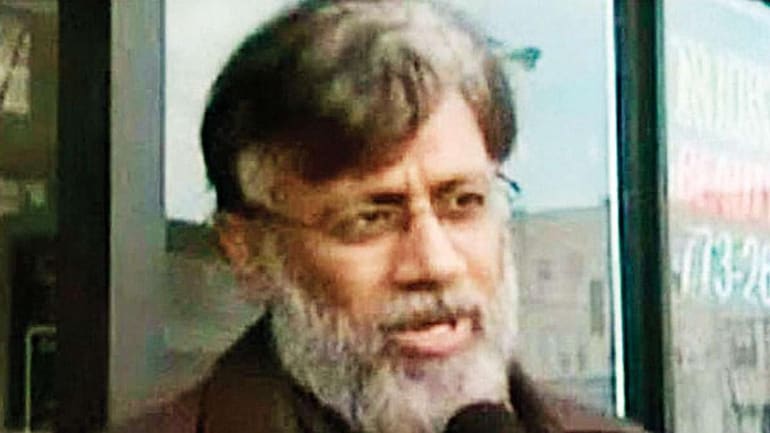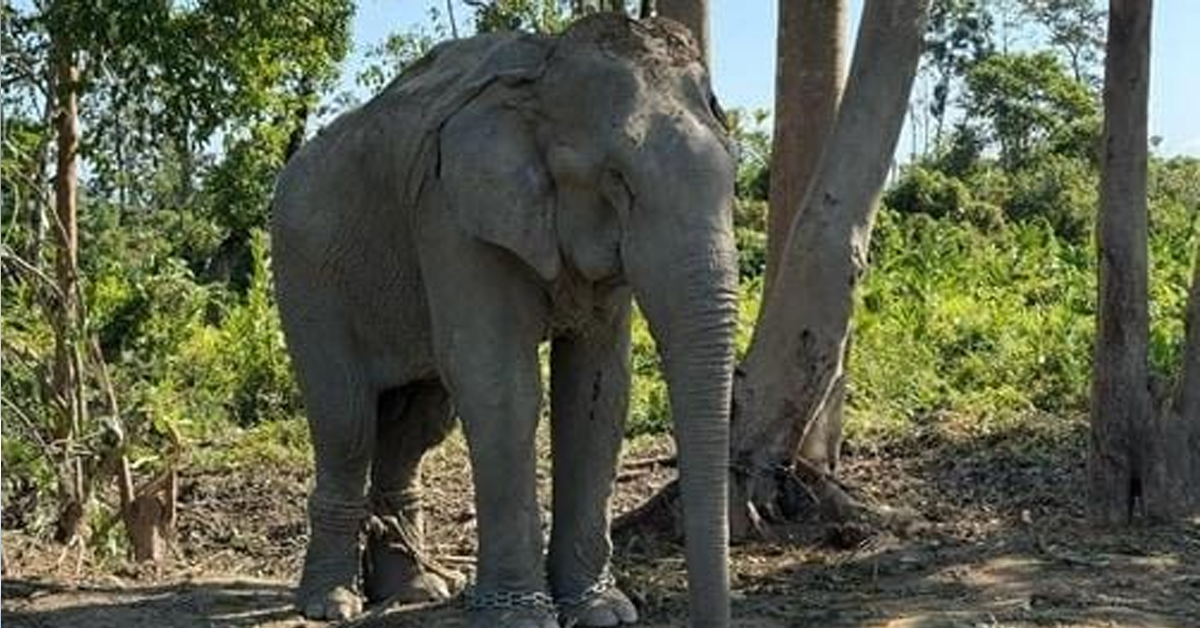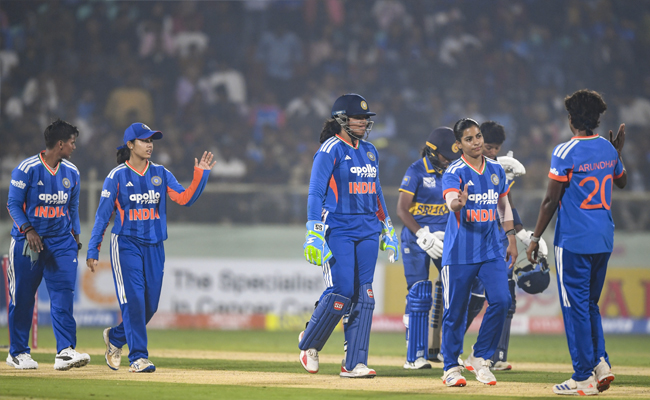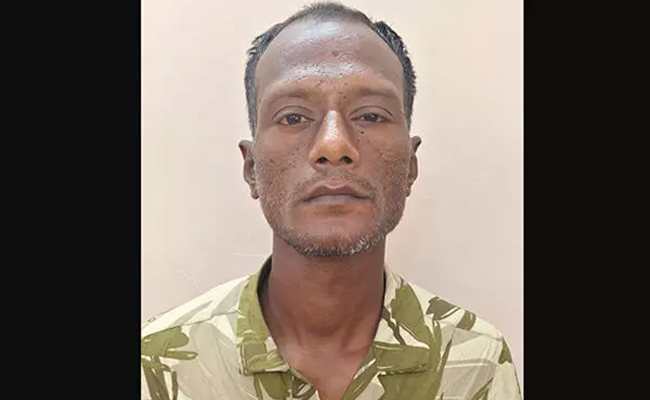Washington, Jul 20: The Biden administration has urged a federal court in Los Angeles to extradite Pakistani-origin Canadian businessman Tahawwur Rana to India where he is sought for his involvement in the 2008 Mumbai terror attack.
Rana, 59, has been declared a fugitive by India, where he is facing multiple criminal charges for his involvement in the 2008 Mumbai terror attack in which 166 people, including six Americans, were killed. He was rearrested on June 10, 2020, in Los Angeles on an extradition request by India
In a submission before the US District Court, Central District of California in Los Angeles, the US government argues that India's extradition request contains sufficient evidence of probable cause on each of the criminal charges for which India seeks Rana's extradition.
Having found that all of the requirements for certification of extradition have been satisfied, the Court certifies the extradition of Tahawwur Hussain Rana to the Secretary of State and commits him to custody pursuant, according to a draft order proposed by the US attorney in his submission before the court last week.
Based on the evidence submitted by India, RANA allowed fraud against the Indian government to occur through the creation and submission of forged documents. The purpose behind such fraud is irrelevant under the Indian criminal provisions, said the document titled proposed findings of facts and conclusions of law.
Rana is wanted by the Indian authorities for his alleged involvement in the deadly attacks that are sometimes referred to as India's 9/11. An Indian warrant for his arrest was issued in August 2018.
Indian authorities allege that Rana conspired with his childhood friend David Coleman Headley to assist the Pakistani terror group Lashkar-e-Taiba (LeT), or Army of the Good, in the orchestration of the 2008 terror attacks in Mumbai.
In any event, RANA knowingly allowed Headley to obtain the business visa and the cover that he needed to conduct terrorism-related surveillance operations in India, ultimately leading to the three-day terrorist attacks in Mumbai. Accordingly, the Court finds there is probable cause that RANA conspired to forge a document for the purpose of cheating and use a forged document as genuine, in violation of IPC 120B, 468, and 471, it said.
According to the court document, the evidence establishes that the Mumbai attacks were committed by LeT, a terrorist organisation targeting India. Thus, an attack on Indian soil, especially one that would result in mass casualties, injuries, and damage to property, would strike terror in the Indian people.
Rana was aware that Headley was involved with LeT, and that by assisting Headley and affording him a cover for his activities, he was supporting the terrorist organisation and its associates. Rana knew of Headley's meetings, what was discussed, and the planning of the attacks, including some of the targets. Further, it was foreseeable that these attacks would lead to death, injury, and destruction of property, it said.
Accordingly, this Court finds that there is probable cause that Rana committed the crimes of conspiracy with the object of committing a terrorist act, in violation of IPC 120B and UAPA 16, and conspiracy to commit a terrorist act, in violation of UAPA 18. The court further finds that under an agency theory or an abetting theory (as contemplated by UAPA 16), there is probable cause that Rana committed the substantive crime of commission of a terrorist act in violation of UAPA 16, said the document submitted by the US attorney.
India has charged forgery for purposes of cheating, in violation of IPC 468, as an object of the alleged criminal conspiracy. India also charged the crime of using as genuine a forged document or electronic record, in violation of IPC 471, as an object of the alleged criminal conspiracy.
The document said that the evidence establishes that Rana conspired with Headley to provide false information on multiple documents submitted to the Indian government.
In 2006 and 2007, Rana conspired with Headley to include false information on Indian government documents, so that Headley could obtain business visas (a one-year and a five-year multiple entry) as an alleged employee of Rana's business. On both occasions, Rana reviewed Headley's applications and failed to correct information Rana knew to be false, it said.
Rana also had the Immigrant Law Center, through his unsuspecting business partner, submit the applications to the Indian Consulate. RANA also allowed his business to apply to the Reserve Bank of India, while falsely claiming it wanted to open an office in Mumbai with Headley serving as the business's Office Head' it said.
On the other hand, Rana's attorney in their proposed draft order is opposed to the extradition.
The Court finds that the government has not satisfied the requirement of Article 9(3)(c) of the Treaty that a request for extradition be supported by such information as would justify the committal for trial of the person if the offense had been committed in the Requested State," it said.
Extradition is therefore denied, says Rana's proposed findings of facts and conclusions of law. Both the documents were submitted before the court on July 15.
Let the Truth be known. If you read VB and like VB, please be a VB Supporter and Help us deliver the Truth to one and all.
Pilibhit (PTI): A 19-day-old elephant calf, brought from Bijnor, was placed under care at the Pilibhit Tiger Reserve (PTR) on Sunday, an official said and added that the calf got separated from its mother in the forest area of Bijnor.
The calf was born on December 2 in the Bijnor forest area and got separated from its mother shortly after birth, the official said.
The forest department made several attempts to reunite it with its mother, but without any success. To ensure the calf's safety and better care, it was decided to transfer it to the Pilibhit Tiger Reserve on the instructions of senior officials.
On Saturday, Deputy Director Manish Singh received the calf. Special arrangements have been made in the reserve for its care. It has been kept in a safe and clean environment to provide it with a natural setting and protect it from external noise and disturbances.
Singh told reporters that raising an 19-day-old calf is challenging.
It requires a special diet as a substitute for mother's milk and constant monitoring.
He said a special team has been formed to provide 24-hour care. Since the calf is very young, it is being cared for like a newborn baby.
According to Singh, the primary responsibility for monitoring the calf's health has been entrusted to PTR's veterinarian, Dr Daksh Gangwar. Under his supervision, a complete record of the calf's health checkups, diet, and body temperature is being maintained. The team is ensuring that the calf does not contract any infection.





